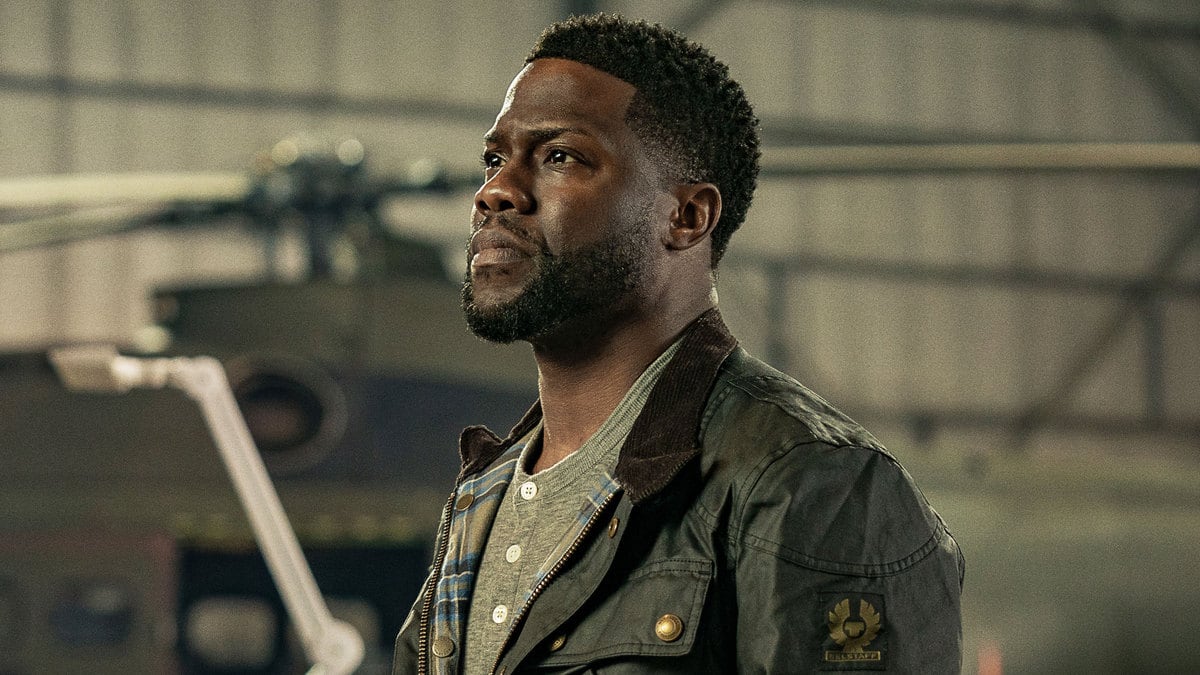Within seconds, F. Gary Gray’s Lift (on Netflix Jan. 12) foreshadows the kind of film it’s going to be, thanks to an uncanny music cue reminiscent of a famous classical piece: Mozart’s Symphony No. 40. The music, like the movie, feels familiar, but only because it’s riffing on something better. This composition introduces an expensive art heist in Venice involving a sprawling crew, whose members all have their own unique skills and who are all eventually roped into a blockbuster scheme: one big, final job! In other words, the premise of dozens of other heist films that radiate more style and move with more clockwork precision.
Lift, however, has the distinction of being an experiment, too, in that its star and producer, Kevin Hart, attempts to play a suave leading man, à la George Clooney in Ocean’s 11. Unfortunately, this turns out to be a severe miscalculation—not because Hart lacks the range, but because of the disconnect between the writing and his performance. On paper, his art swindler, Cyrus Whitaker, reads like one of Hart’s typical energetic, comic-relief characters—an insecure underdog biting back with impromptu jabs. However, Hart’s withheld demeanor in the role renders Cyrus a non-character with no charisma; the aim is self-assuredness, but the result is more like Hart doing a drowsier version of his regular comedy routine. His occasional banter about the value of art (and about fancying himself an artist) remains thoroughly unconvincing.
Evading Interpol—led by Agent Abby Gladwell (Gugu Mbatha-Raw), with whom he has romantic history—Cyrus and his multinational crew of skilled misfits target half a billion dollars in gold as it’s being transported in the hull of a passenger plane. The promise of a mid-air heist (or “lift,” as Cyrus calls it) ought to make for a unique spectacle, given all the turbulent possibilities not usually found in a casino vault. But only 20 odd minutes in the middle of the 105-minute runtime are actually spent aboard the aircraft in question.
A large chunk of the film depicts the requisite prep work needed to pull off such a herculean feat, but these scenes are far more explanatory than demonstrative. A heist this head-scratchingly complicated—the one superlative that Daniel Kunka’s screenplay successfully achieves, with its bizarro scheme of mid-air plane-swapping—begs to be dramatized in advance through some form of run-though. Merely verbalizing the plan renders its actual execution confusing. It’s hard to get invested in the individual twists and turns when their potential outcomes are obscured.

Kevin Hart and the cast of Lift
NetflixIt certainly doesn’t help that none of Cyrus’ crew seem to have distinct personalities — except for Vincent D’Onofrio’s affable character actor Denton, though his games of dress-up and distraction are arguably perfunctory to a high-tech outfit. The supporting crew, played by Úrsula Corberó, Billy Magnusnen, Kim Yoon-ji, and Viveik Kalra, each have their own designations (“the pilot,” “the hacker,” “the safe-cracker” and so on), but are largely interchangeable as people. They all enjoy expensive art and luxury yachts, and they make the occasional quip that Hart might otherwise have in a movie opposite The Rock. They also balk at the idea that the gold they’re stealing—from terrorist mastermind Lars Jorgensen (Jean Reno)—could serve a more altruistic purpose, since they’re also saving lives by essentially defunding him. There’s no urgent drama here, in a micro or macro sense.

A film still from Lift
NetflixGray, who made the heist film The Italian Job 20 years ago, knows how a movie like this ought to be introduced, with frenetic camera work that would feel at home in a lavish music video. However, apart from its initial scenes in Venice—which are immediately dated, since they revolve around lifting a priceless NFT (which are now practically worthless)—his aesthetic approach is stilted. The lighting is bright and garishly flat, lacking any sense of intrigue; and the modern pop and hip hop selections on the soundtrack can’t compensate for the absence of visual energy. The characters are usually blocked to sit around lounging in open spaces, and while this speaks to how relaxed and casual they are around one another, it rarely allows any of the actors to create meaningful relationships through body language or movement.
A vivid ensemble is perhaps the most vital ingredient to a worthwhile heist film. But without either interpersonal tension or casual, competent cool, Lift ends up in a lukewarm middle ground without much to show for its expensive efforts. Why skip past the fun and challenges of putting together a criminal scheme? Without them, there’s no payoff when it goes right or wrong. In the end, all Lift really steals is your time.






